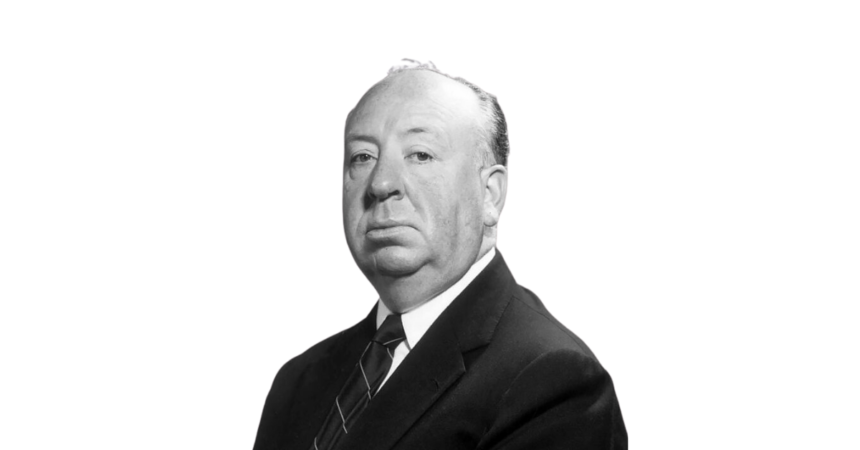Alfred Hitchcock, the master of suspense, was not only known for his groundbreaking films but also for his meticulous daily routine. His life was as structured as his movies, with a schedule that reflected his discipline, creativity, and unique personality. Understanding Hitchcock’s daily routine offers insight into how he managed to produce a prolific body of work that continues to influence filmmakers today.
Early Morning: Quiet Beginnings
Hitchcock’s day typically started early. He believed in the power of routine to maintain his creative energy and productivity. He would wake up around 6:00 AM and spend the first hour of his day in quiet contemplation, often enjoying a cup of tea. This quiet time was crucial for Hitchcock, allowing him to gather his thoughts and plan his day ahead.
Morning: Creative Work and Planning
By 7:00 AM, Hitchcock would begin his workday. He was a firm believer in tackling the most challenging tasks in the morning when his mind was freshest. This time was usually reserved for scriptwriting, storyboarding, and planning his films. Hitchcock was known for his detailed storyboards, which he would meticulously create to ensure every shot was planned before filming began. This planning was a cornerstone of his filmmaking process, allowing him to visualize every scene and reduce the need for improvisation on set.
From 9:00 AM to 12:00 PM, Hitchcock would continue his creative work. He often collaborated with writers and other key members of his production team during this time. Hitchcock valued collaboration and believed that the best ideas often came from working closely with others. He was known for his ability to communicate his vision clearly, ensuring that everyone involved in the project was on the same page.
Midday: Meetings and Social Time
Hitchcock’s afternoons were typically filled with meetings and social engagements. From 12:00 PM to 1:00 PM, he would have lunch, often with colleagues, producers, or actors. These lunches were not only a time to discuss business but also an opportunity for Hitchcock to engage in his love of good food and conversation. Known for his wit and charm, he was a captivating storyteller who enjoyed entertaining those around him.
After lunch, from 1:00 PM to 3:00 PM, Hitchcock would continue with meetings. This time was usually reserved for discussions with producers, studio executives, and other key stakeholders. Hitchcock was a skilled negotiator who understood the importance of maintaining good relationships within the industry. His ability to navigate the complex world of film production was a testament to his professionalism and expertise.
Late Afternoon: Reviewing and Refining
From 3:00 PM to 5:00 PM, Hitchcock would review the work done earlier in the day. This could include reviewing scripts, storyboards, or footage from recent shoots. Hitchcock was known for his attention to detail and his ability to spot even the smallest flaws. This review process was crucial for maintaining the high standards he set for his films.
Evening: Family Time and Leisure
Hitchcock’s evenings were dedicated to relaxation and family time. From 5:00 PM to 7:00 PM, he would spend time with his wife, Alma, and their daughter, Patricia. Family was important to Hitchcock, and he valued these moments of connection and relaxation.
After dinner, from 7:00 PM to 9:00 PM, Hitchcock would often watch films or television. He believed that staying informed about the work of other filmmakers was essential for maintaining his own creative edge. He enjoyed analyzing the techniques used by other directors and finding inspiration for his own projects.
Night: Reflection and Rest
By 9:00 PM, Hitchcock would begin winding down for the night. He often spent the last hour of his day reading or reflecting on the day’s work. He believed in the importance of rest and would go to bed by 10:00 PM, ensuring he was well-rested and ready for the next day’s challenges.
Hour by Hour Breakdown of Alfred Hitchcock’s Daily Routine
- 6:00 AM – 7:00 AM: Quiet contemplation and tea.
- 7:00 AM – 9:00 AM: Creative work (scriptwriting, storyboarding).
- 9:00 AM – 12:00 PM: Collaboration with writers and production team.
- 12:00 PM – 1:00 PM: Lunch with colleagues.
- 1:00 PM – 3:00 PM: Meetings with producers and studio executives.
- 3:00 PM – 5:00 PM: Reviewing scripts, storyboards, and footage.
- 5:00 PM – 7:00 PM: Family time.
- 7:00 PM – 9:00 PM: Watching films or television.
- 9:00 PM – 10:00 PM: Reading and reflection.
- 10:00 PM: Bedtime.
Alfred Hitchcock’s daily routine was a blend of creativity, discipline, and balance. His structured approach to his work and personal life allowed him to maintain a high level of productivity and creativity throughout his career, leaving a lasting legacy in the world of cinema.




